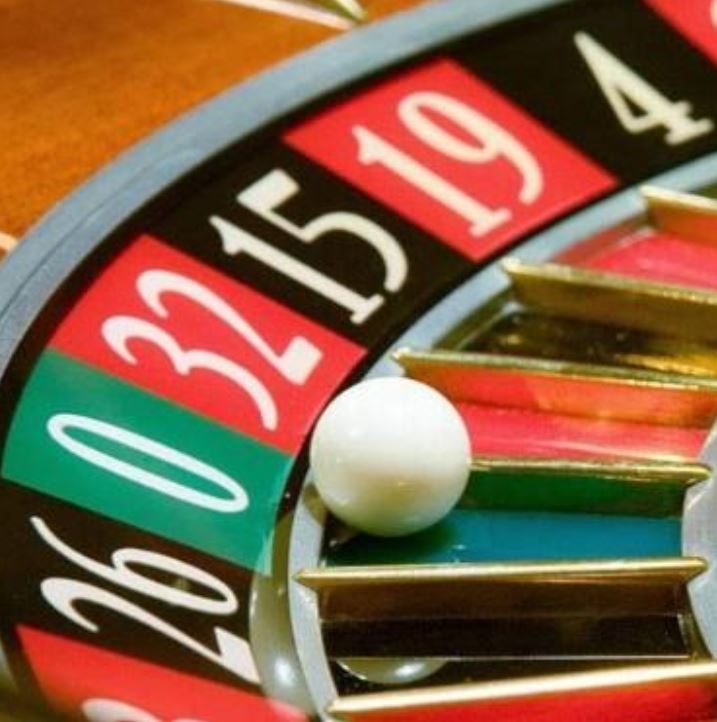
If you have never seen That Mitchell and Webb Look do yourself a favour this Christmas break and check some of it out. One of my favourite skits of theirs is ‘NumberWang’. The running gag of a game show with glitz, glamour and indecipherable rules [-1.873].
I am lucky that my wife loved the show too. She is a successful and financially savvy woman, but shares little of my interest in individual stock picking. Some time ago, probably on one of many occasions that I was prattling on a little too earnestly about some ASX no-hoper, she has reminded me of that skit.
Me: “Honey, that stock I own, the one I was talking about, they just got bought out for a 30% premium.”
Her: “That’s NumberWang! Yay!”
Or, perhaps more likely:
Me: “Um, Babe...that other one I was talking about...yeah, if I sold today I’d lose 80% of my principal.”
Her: “That’s not NumberWang.”
The term ‘NumberWang’ is now just another ordinary word in our household. There are two main reasons while I’ll be forever grateful that this is the case.
Firstly, because although it sounded odd for all of a few minutes, frankly it is no less normal a word than most of the ridiculous lingo that investing in general has brought into the world. We’ll use the seasonally appropriate ‘Santa Rally’ as just one example, the phenomenon which describes stocks going up in December. Except when they don’t, when Santa instead brings us ‘a lump of coal’. So you see, the Stockmarket, in the month of December, can go either up or down. Thankfully, we have such meaningful and useful shorthand to explain this binary outcome.
We are in the red or in the black. Like a roulette wheel. That is my preferred analogy.

Which brings me to my second point: It’s a game. A rigged one at that. Because you can’t forget that little green fella, the zero. The sooner you come to terms with him the more fun you are going to have. Don’t let knowing that the ‘The House Always Wins’ ruin your one night out in Monte Carlo.
Don’t get me wrong, I’m not advocating gambling with the household finances. Within any partnership you need clearly defined boundaries on which funds are going to be allocated which risk and by whom. And never forget perhaps one of life’s most important maxims: Play stupid games, win stupid prizes.
What I am saying is that I feel lucky to have been given the freedom to fail safely, because that is how humans learn [2].
Modern psychological theory suggests we should all be trying to do this, in whatever way we can [3]. Games are important. They are the reason I collect Flybuys and Woolies reward points when I know they are, in net terms, a low-value proposition. But rewards gamify grocery shopping, that’s how they tricked us. From a strictly frugal point of view I should be learning the German word for Tim-Tams at Aldi.
The ‘House’ edge in our case – the green zero – is the benchmark for Strawman, the ASX 300. The reason I believe we as Strawman members need to come to the accept the prospect of future failures, is because statistically most of us will underperform the index.
Don’t worry, it’s not personal. This is true of Wall Street’s smartest, of some of the best money managers in the world [4].
Statistics are, for that matter, a game unto themselves. Two rules in particular that we need to remember for that game are ‘Survivorship Bias’ [5] and ‘Regression to the Mean’ [6].
The first describes when you look at the starting blocks for the Olympic Final of the men’s 200m freestyle and think “they’ve all got V-shaped ‘swimmer’s bodies’ (Broad shoulders, long limbs, narrow waists). They must have got them from all that swimming.” That’s wrong. The interesting truth is that without being genetically predisposed to that build, the odds of being good enough to compete at that level lengthen dramatically. The ‘swimmers’ body’ becomes almost a pre-requisite. Correlation is not causation.
The latter describes the proven tendency for outlying performance to return to the average fold. We are probably all familiar with the phrase: Past performance is not a reliable indicator of future performance … Again correlation is not the same as causation.
All of the above has got me thinking about scorecards. Despite all I have written, they are more than just a valuable feature of Strawman. They are an essential feature, and fundamental to the Strawman ethos and concept.
I’m just not sure that they measure enough (NB I’m also well aware that my next points could all be moot following the impending upgrade that Strawman has prophesised for some moons now). I am interested in tracking my performance over a yearly basis and am contemplating a ‘reset’ in either the new calendar year or later in July when the Financial Year ticks over.
There is a big element of self-interest here. Not of pride mind you, at the time of writing I am on an amateurish -14% that I am happy to have posted here in shameless perpetuity. I’m not really looking for the Mulligan I believe it was intended for. However, I do like the idea of approaching the next hole without the burden of my last one’s sub-par performance making me tee-off sitting on a double bogey, even before I slice my new ball into the woods.
But any game has got to have rules and some consensus of fair play. So I’m asking the question: Would you consider me using the current scorecard reset facility in the manner I propose to be unsporting?
[In this case ‘unsporting’ means If you feel it falls anywhere on the broad spectrum from flagrant cheating at one end to lacking in transparency at the other].
Merry Christmas fellow members, and all the best for the New Year. May 2019 herald a NumberWang Rally!
Edited from article first published on Strawman forum 26/12/2018
Return to the Strawman Platform here
Strawman is Australia’s premier online investment club. Join for free to access independent & actionable recommendations from proven private investors.
This Service provides general financial advice only, and has not taken your personal circumstances into account. Strawman Pty Ltd operates under AFSL 501223 . For more information please see our Terms of use. Please remember that share market investments can go up and down and that past performance is not necessarily indicative of future returns. Strawman Pty Ltd does not guarantee the performance of, or returns on any investment.
© 2019 Strawman Pty Ltd. All rights reserved.
| Privacy Policy | Terms of Service |
ACN: 610 908 211 | Australian Financial Services Licence (AFSL): 501223










